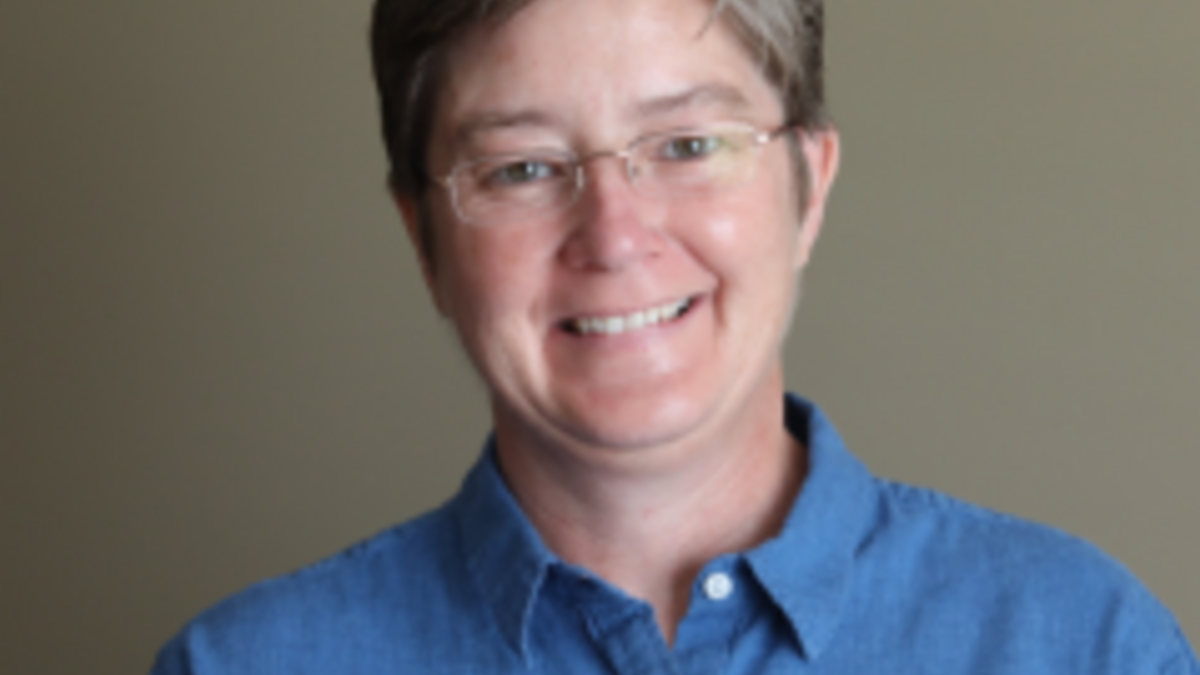Rebecca Sandefur named director of ASU Sanford School

Rebecca Sandefur
Since its founding by Richard Fabes in 2006, the T. Denny Sanford School of Social and Family Dynamics at Arizona State University has focused on empowering communities through social impact. Offering degrees in sociology and family and human development, the school has helped countless students make their mark on the world by becoming professionals and business people focused on improving their communities.
Now the Sanford School has a new director.
For professor and sociologist Rebecca Sandefur, who previously taught at the University of Illinois, joining ASU as a faculty member in 2019 was a matter of values: “I came to ASU because of those values that are in the charter,” she says. “It's about excellence in teaching and research, and it's about having a positive impact on the communities that we live in and that we serve. And it was wonderful to me that there was a place where I could do my work that had those values.”
Sandefur, a faculty fellow at the American Bar Foundation and the editor of Law & Society Review, has lived these values for more than two decades through her research pursuing a more equitable, accessible civil justice system. Sandefur’s numerous recognitions include a MacArthur "genius" Fellowship in 2018, the Warren E. Burger Award in 2020 and a New York Times feature. Having authored dozens of publications on civil justice, she is bringing both an in-depth research expertise and a passion for empowering others to her new role in a school dedicated to social impact.
RELATED: Exploring new ideas about civil justice reform
Sandefur is eager to welcome new students during her first academic year as director. In preparation for the fall, we asked a few questions to get to know her.
Q: What inspired you to become a sociologist?
A: I became a sociologist in college really, because I was really interested in inequality and where it came from and … why it was so persistent, despite all of our attempts to reduce it. And so my work since then has been looking at inequality in different kinds of contexts. My dissertation was about inequality in the American legal profession, and now I work on inequality and access to law.
Q: Describe your research on social reform. What is the purpose?
A: My goal is to live in a world where people can have safe, healthy, flourishing lives. It turns out that access to law to resolve civil legal issues is critical to that. These would be issues like being paid for the work that you’ve done, being at risk of losing your house, needing to take care of your grandkids because your kids can't take care of them.
Being able to solve those issues is really critical to having a good life. And you need access to justice or to law to solve almost all of them. So my work is about finding new ways to help people solve those problems so that they can have healthy, safe and flourishing lives.
Q: What do you hope students will take away from your research and experiences?
A: I think one of the things that we want them to learn is that they're citizens of the world, and the world is the way it is because we've decided it's going to be this way. So we're capable of having new ideas and taking new actions that would make the world more like what we want it to be. And I hope that's how they come out of ASU.
Q: What’s your advice for students who want to change the world?
A: My advice to students who want to change the world is to realize that you can, and you cannot do it by yourself. You're always going to have to be working with other people to do things that are important and impactful. So find those people and get together with them and start.
Q: Now for some fun questions. Do you have any pets?
A: We have two! We have a Chihuahua who’s 14 and a half, and runs our household, and we have a big hairy yellow dog of indeterminate ancestry that is about 35 pounds.
Q: What are your favorite hobbies?
A: I love to go hiking and camping, and I love cooking. I also really enjoy eating!
Q: What are you most excited about for the coming school year?
A: Well, my dog might finally learn how to sit!
One of the most exciting things as a faculty member is to look forward to the fall when the new PhD students and the new master’s students and the new undergraduate students all arrive. And they're so excited, and so fresh, and so ready to learn. So I'm really looking forward to that.
More Arts, humanities and education

Local traffic boxes get a colorful makeover
A team of Arizona State University students recently helped transform bland, beige traffic boxes in Chandler into colorful works…

2 ASU professors, alumnus named 2025 Guggenheim Fellows
Two Arizona State University professors and a university alumnus have been named 2025 Guggenheim Fellows.Regents Professor Sir…

No argument: ASU-led project improves high school students' writing skills
Students in the freshman English class at Phoenix Trevor G. Browne High School often pop the question to teacher Rocio Rivas.No,…

